
ISO Certification for Packaging Companies: A Comprehensive Guide
Key Takeaways
- ISO certification establishes credibility and ensures quality standards in packaging production
- Common standards include ISO 9001 (Quality Management), ISO 14001 (Environmental Management), and ISO 15378 (for medicinal packaging)
- Certification helps packaging companies improve operational efficiency and reduce costs
- Security and safety features are essential components of ISO-compliant packaging
- Proper documentation and implementation processes are critical for successful certification
Introduction to ISO Certification for Packaging Companies
ISO certification is an important achievement for packaging companies that want to show they care about quality, safety, and protecting the environment. At Labelprint24, we know how important it is to follow international standards in our industry. ISO (International Organisation for Standardisation) certification proves that our products are good quality and helps customers trust us more in the competitive packaging market.
The packaging industry has special challenges that make standards really important. We need to make sure products are safe and follow environmental rules that can be different depending on where you are and what kind of product you're packaging. ISO certification gives us a framework to keep quality consistent whilst meeting the needs of our clients who make food, medicine, cosmetics, and retail products. These standards also help us solve technical problems related to materials working well together, keeping products protected, and making sure printing looks good.
In this guide, we'll look at the different ISO standards for packaging companies, the benefits of getting certified, and how to go through the certification process. We'll also show how our commitment to ISO standards makes sure our customers get packaging that meets the highest international quality standards. Whether you want to get certification for your own packaging company or just want to understand why it's good to work with an ISO-certified packaging supplier, this guide will help you understand why standards are important in our industry and what packaging manufacturers need to do to follow the rules.
Key ISO Standards for the Packaging Industry
The packaging industry needs to follow several ISO standards that control different parts of production, quality control, and environmental impact. Understanding these standards is important for companies that want certification and for customers who want to make sure they're working with good suppliers that can consistently deliver high-quality packaging products. Each standard covers specific aspects of packaging production and management, creating a complete framework for excellence in the industry.
ISO 9001: Quality Management Systems
ISO 9001 is probably the most basic certification for packaging companies. This standard focuses on quality management systems and provides a framework for making sure product quality stays consistent. For packaging manufacturers, ISO 9001 certification shows a commitment to creating and maintaining strong processes that deliver reliable results. The standard emphasises a process-based approach to quality management and includes risk-based thinking to prevent defects rather than just finding them after production.
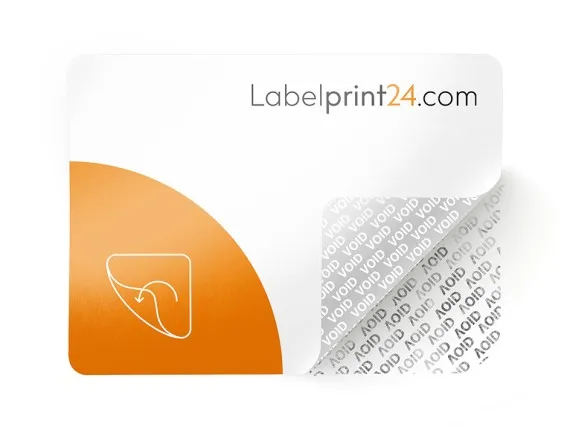
Key elements of ISO 9001 for packaging companies include:
- Consistent production processes with clearly defined parameters and controls
- Regular quality control checks at critical points throughout manufacturing
- Customer satisfaction monitoring through feedback collection and analysis
- Continuous improvement initiatives based on data and performance metrics
- Documentation of procedures and outcomes to ensure repeatability and traceability
At Labelprint24, our security labels and packaging solutions are made under strict quality management systems that match ISO 9001 requirements, making sure every product meets our high standards before reaching customers. We check quality throughout our production process, from choosing materials to final inspection, ensuring our packaging products work well in real-world situations.
ISO 14001: Environmental Management Systems
Environmental responsibility is becoming more important in the packaging industry as consumers, brands, and regulators focus on reducing environmental impact. ISO 14001 certification covers environmental management systems and provides a framework for reducing environmental impacts whilst improving resource efficiency. This standard helps packaging companies develop systematic approaches to environmental management that go beyond just following regulations to make real improvements in environmental performance.
ISO 14001 helps packaging companies:
- Minimise negative environmental impacts through systematic identification and management of environmental aspects
- Comply with applicable laws and regulations across different jurisdictions where products are sold
- Improve resource efficiency by optimising material usage and energy consumption
- Reduce waste and pollution through better process design and material selection
- Set and achieve environmental objectives that align with business goals and stakeholder expectations
This certification is especially relevant for packaging companies as we work to develop more responsible solutions and reduce the environmental impact of our products. Our stand-up pouches and other flexible packaging options are designed with environmental considerations in mind, balancing functionality with responsible practices through material selection, design optimisation, and production efficiency.
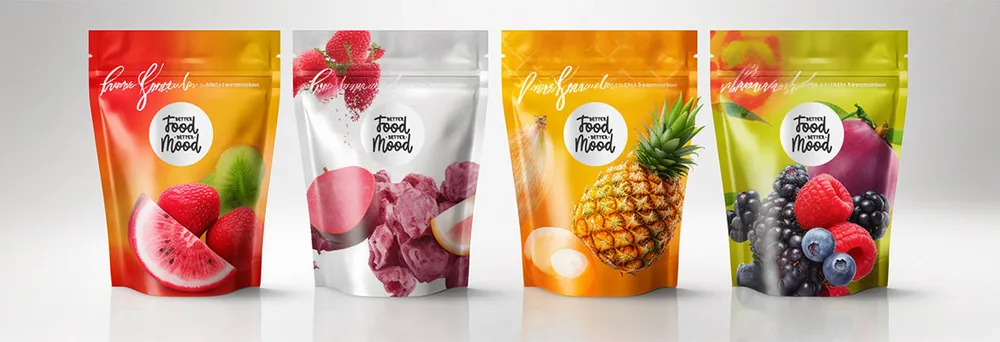
ISO 15378: Primary Packaging Materials for Medicinal Products
For packaging companies that serve the pharmaceutical industry, ISO 15378 is a critical standard that covers the specific requirements of primary packaging materials for medicinal products. This specialised certification combines the requirements of ISO 9001 with Good Manufacturing Practices (GMP) specific to pharmaceutical packaging, creating a complete framework for ensuring the safety, effectiveness, and quality of packaging that comes into direct contact with medicines.
ISO 15378 covers essential aspects of pharmaceutical packaging production:
ISO 15378 helps ensure that packaging materials used for medicines are safe, effective, and high quality. This standard is important because pharmaceutical packaging must protect medications and not interact with them in harmful ways. Companies that follow ISO 15378 have careful systems for selecting materials, preventing contamination, tracking products, handling items properly, and keeping detailed records. This helps make sure that the packaging for medicines meets all the strict requirements of the pharmaceutical industry and government regulations.
Our booklet labels and expanded content labels are particularly valuable for pharmaceutical packaging, providing plenty of space for required information whilst following relevant standards. These specialised labels fit all the extensive information required for pharmaceutical products, including dosage instructions, warnings, and regulatory information, whilst ensuring it stays readable and durable throughout the product's life.
ISO 22000: Food Safety Management Systems
Packaging companies that make materials for food products should consider ISO 22000 certification. This standard focuses on food safety throughout the supply chain and provides a framework for identifying and controlling food safety hazards. For packaging manufacturers, ISO 22000 helps ensure that packaging materials don't introduce contaminants or otherwise compromise the safety of food products they contain.
ISO 22000 includes requirements for:
- Hazard analysis and critical control points (HACCP) to systematically identify and manage food safety risks
- Interactive communication along the food chain to ensure effective exchange of information about hazards
- System management through integrated approaches that address both quality and safety
- Prerequisite programmes that establish basic conditions for safe food packaging production
- Food safety management through continuous monitoring and verification of control measures
ISO certification offers many advantages for packaging companies beyond just following international standards. These benefits extend throughout the organisation and provide value to customers as well. From operational improvements to market differentiation, ISO certification delivers real returns on investment that make it worthwhile for packaging manufacturers of all sizes.
For food packaging manufacturers, this certification shows a commitment to preventing contamination and ensuring that packaging materials are safe for food contact throughout their intended use. It addresses specific concerns related to substances moving from packaging to food, barrier properties that maintain food quality, and design features that prevent contamination during storage and use.
Benefits of ISO Certification for Packaging Manufacturers
Enhanced Credibility and Market Access
Certification from recognised international bodies greatly enhances a packaging company's credibility in the marketplace. This credibility is particularly valuable in an industry where product safety, quality, and performance are critical considerations for customers. ISO certification provides objective verification of a company's capabilities and commitment to quality, making it easier to build trust with new customers and strengthen relationships with existing ones.
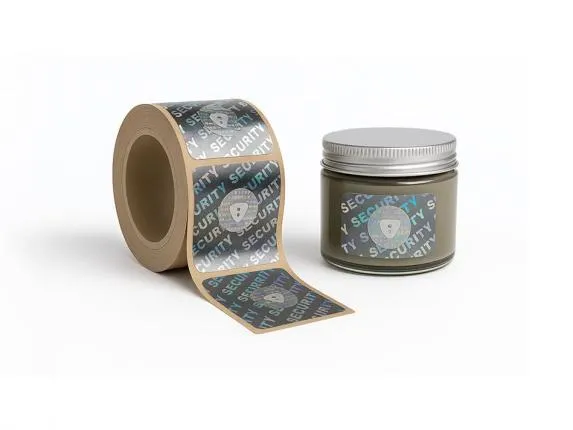
This enhanced credibility translates into tangible business benefits:
- Increased customer confidence in product quality and reliability, leading to stronger brand preference
- Access to new markets with strict entry requirements, including regulated industries and international markets
- Competitive advantage over non-certified companies, particularly in quality-sensitive applications
- Stronger relationships with existing clients based on demonstrated commitment to quality
- Improved reputation within the industry, leading to referrals and partnership opportunities
At Labelprint24, our certifications help assure customers that our packaging for cosmetic products and other specialised solutions meet rigorous international standards. This assurance is particularly important in the cosmetics industry, where packaging must not only protect the product but also comply with specific regulatory requirements and maintain the brand's aesthetic appeal.
Operational Efficiency and Cost Reduction
The process of obtaining ISO certification often leads to big improvements in operational efficiency. By examining and optimising processes according to international best practices, packaging companies can identify and eliminate inefficiencies, reduce waste, and improve resource utilisation. These improvements not only support certification but also deliver substantial cost savings and productivity gains that benefit the bottom line.
Key operational benefits include:
Getting ISO certified helps packaging companies work better and save money. When a company goes through certification, they have to look carefully at how they do things. This often leads to finding and fixing wasteful procedures, creating smoother production workflows, reducing mistakes and defects, lowering operational costs, and making better use of equipment and staff. These improvements help companies produce packaging faster and more reliably, which makes customers happier. Our efficient order management system is one example of how we've made our operations better to serve customers, providing clear information about orders and making the fulfilment process smoother.
Regulatory Compliance Assurance
The packaging industry has to follow many regulations that vary by region and product type. These regulations cover things like material safety, environmental impact, labelling requirements, and product information disclosure. Dealing with all these different rules can be challenging, especially for companies serving multiple markets or industries with special requirements.
ISO certification helps companies handle this complex regulatory landscape by:
- Ensuring awareness of applicable regulations through systematic monitoring and information management
- Implementing systems to maintain compliance and adapt to regulatory changes
- Documenting compliance efforts to demonstrate due diligence to regulators and customers
- Preparing for regulatory changes through forward-looking management approaches
- Reducing the risk of non-compliance penalties, product recalls, and reputational damage
For specialised packaging like our laminate tubes with screw closures, regulatory compliance is particularly important as these products often contain sensitive materials like cosmetics, pharmaceuticals, or food products that are subject to strict safety regulations. Our ISO-compliant management systems help ensure that these products meet all applicable requirements whilst delivering the performance characteristics customers expect.

Continuous Improvement Culture
ISO certification creates a culture of continuous improvement within packaging companies. Rather than seeing quality as a fixed target, ISO standards encourage organisations to continually evaluate and enhance their processes, products, and systems. This forward-looking approach helps companies stay ahead of changing market demands and technological developments, maintaining competitiveness in a dynamic industry.
Key aspects of the continuous improvement culture include:
- Regular review of processes and outcomes to identify improvement opportunities
- Proactive identification of improvement opportunities through data analysis and feedback
- Employee engagement in quality initiatives that leverage front-line knowledge and experience
- Data-driven decision making that focuses resources on high-impact improvements
- Long-term sustainability of quality systems through ongoing refinement and adaptation
Our commitment to continuous improvement is reflected in our expanding product range, which now includes innovative solutions like multi-layer labels that provide enhanced functionality for our customers. These specialised labels offer expanded content space whilst maintaining a compact footprint, addressing the growing need for detailed product information in limited packaging space.
The ISO Certification Process for Packaging Companies
Obtaining ISO certification is a structured process that requires careful planning and implementation. For packaging companies, this process typically involves several key stages that build upon each other to create a robust quality management system. Understanding this process helps companies prepare effectively and allocate appropriate resources to achieve certification successfully.
Initial Assessment and Gap Analysis
The certification journey begins with an assessment of current operations against the requirements of the relevant ISO standards. This comprehensive evaluation examines all aspects of the organisation's management systems, from documentation and processes to employee training and resource allocation. The gap analysis identifies areas where the company already meets requirements and where improvements are needed before certification can be achieved.
This initial assessment helps identify:
- Areas of non-compliance that require immediate attention and corrective action
- Documentation needs, including policies, procedures, and records that must be developed or updated
- Required process changes to align operations with ISO requirements and best practices
- Training requirements to ensure staff understand and can implement new procedures
- Resource allocation needs for implementing necessary changes and maintaining the system
At Labelprint24, we regularly assess our processes to ensure they meet or exceed ISO requirements, allowing us to maintain the high quality of our packaging solutions. This ongoing assessment helps us identify opportunities for improvement and ensure that our management systems remain effective as our product range and customer base evolve.
Documentation Development
Documentation is a critical component of ISO certification, providing the foundation for consistent operations and demonstrating compliance with standard requirements. Whilst the extent of documentation has been streamlined in recent ISO revisions, packaging companies still need to develop and maintain a comprehensive set of documents that define how quality is managed throughout the organisation. These documents not only support certification but also serve as valuable resources for training and operational consistency.
Key documentation typically includes:
- Quality manuals that outline the overall quality management system and its scope
- Process descriptions that define how key activities are performed and controlled
- Work instructions that provide detailed guidance for specific tasks and operations
- Forms and records that capture data about process performance and product quality
- Policy statements that communicate the organisation's commitments and expectations
These documents not only support certification efforts but also serve as valuable resources for training and operational consistency. For specialised products like our security labels, detailed documentation ensures consistent production of these critical items, maintaining their security features and performance characteristics across production runs.
Implementation and Training
Once documentation is in place, the next step is implementation throughout the organisation. This critical phase transforms the documented system from theory to practice, embedding ISO requirements into daily operations at all levels. Effective implementation requires not only introducing new procedures but also ensuring that employees understand their purpose and have the skills to follow them consistently.
This phase includes several key activities:
After creating all the necessary documents, the next step is to put the ISO system into practice throughout the company. This important phase turns the documented system from plans on paper into real daily operations at all levels. Good implementation means not just introducing new procedures but also making sure employees understand why they matter and have the skills to follow them consistently. This includes training employees on new procedures, setting up systems to track performance, creating ways to share information about quality, gradually introducing new processes to allow for adjustments, and testing systems to make sure they work well in real situations. Everyone in the organisation needs to be involved, from production staff to management. Our team is thoroughly trained in making various packaging solutions, including our folding boxes with tuck-in flaps, ensuring consistent quality across all production runs. This training covers technical skills, quality awareness, and the importance of meeting customer requirements.
Internal Audits
Before seeking external certification, packaging companies typically conduct internal audits to verify compliance with ISO standards and identify any remaining issues that need to be addressed. These audits provide a valuable opportunity to test the effectiveness of the quality management system and make necessary adjustments before the formal certification audit. Internal audits also help build audit experience within the organisation, preparing staff for the questions and scrutiny they will face during external assessment.
Effective internal audits:
- Identify remaining non-conformities that need to be addressed before certification
- Verify effective implementation of procedures across different departments and functions
- Test the documentation system to ensure it accurately reflects actual practices
- Evaluate employee understanding of quality requirements and their roles in the system
- Prepare the organisation for external assessment by simulating certification audit conditions
Internal audits provide valuable opportunities for improvement before the formal certification process begins. At Labelprint24, we conduct regular internal audits to ensure the quality of our flat cardboard sleeves and other packaging products. These audits help us identify and address potential issues proactively, maintaining the integrity of our quality management system and ensuring consistent product quality.
Certification Audit and Ongoing Compliance
The final step in obtaining ISO certification is the external audit conducted by an accredited certification body. This independent assessment verifies that the organisation's quality management system meets all requirements of the relevant ISO standard and is effectively implemented throughout the organisation. The certification audit is typically conducted in two stages: a documentation review followed by an on-site assessment of actual practices.

The certification process typically involves:
- Document review to evaluate the completeness and adequacy of the quality management system
- On-site assessment to observe processes in action and verify implementation
- Interviews with staff at various levels to confirm understanding and compliance
- Process observation to verify that documented procedures are followed in practice
- Non-conformity reporting and resolution before certification can be granted
Once certification is achieved, packaging companies must maintain compliance through regular surveillance audits and recertification every three years. These ongoing assessments ensure that the quality management system continues to function effectively and evolves to address changing requirements and business conditions. Our commitment to maintaining certification ensures that products like our stand-up pouches consistently meet international standards and customer expectations.
Specialised ISO Requirements for Different Packaging Types
Different packaging formats have specific ISO requirements that manufacturers must address to ensure product quality, safety, and performance. These specialised requirements reflect the unique characteristics and applications of each packaging type, from structural integrity to printing quality to material compatibility. Understanding these specific requirements is essential for companies producing various packaging solutions to achieve and maintain ISO certification.
Folding Cartons and Boxes
Folding cartons and boxes are a big part of the packaging industry, used for products from medicines to consumer goods. These packaging types must meet specific ISO requirements related to structural performance, material quality, and manufacturing consistency. The requirements address both the functional aspects of packaging that protect products during distribution and the aesthetic elements that influence consumer perception.
Folding cartons and boxes, such as our FEFCO 0210 corrugated board folding boxes, must meet standards related to:
- Material strength and durability to withstand handling, stacking, and environmental conditions
- Folding and gluing quality to ensure structural integrity and reliable assembly
- Print registration and colour consistency for brand identity and product information
- Structural integrity under various load conditions and environmental factors
- Dimensional accuracy to ensure compatibility with filling equipment and secondary packaging
These requirements ensure that folding cartons perform as expected during filling, transport, and use by consumers. Our folding boxes are designed and manufactured to meet these rigorous standards, providing reliable protection and presentation for a wide range of products across different industries.

Labels and Stickers
Labels and stickers have important jobs in packaging, from providing product information to ensuring brand recognition to enabling traceability. These seemingly simple components must meet complex requirements related to adhesive performance, print quality, and environmental resistance. ISO standards for labels address both the technical performance aspects and the information content that supports product identification and use.
Labels and stickers, including our barcode labels for cosmetic products, must comply with standards regarding:
- Adhesive performance under various temperature, humidity, and surface conditions
- Print quality and readability to ensure accurate communication of product information
- Colour fastness and UV resistance to maintain appearance throughout product lifecycle
- Material compatibility with containers to prevent adverse interactions or degradation
- Information content and layout that meets regulatory requirements and user needs
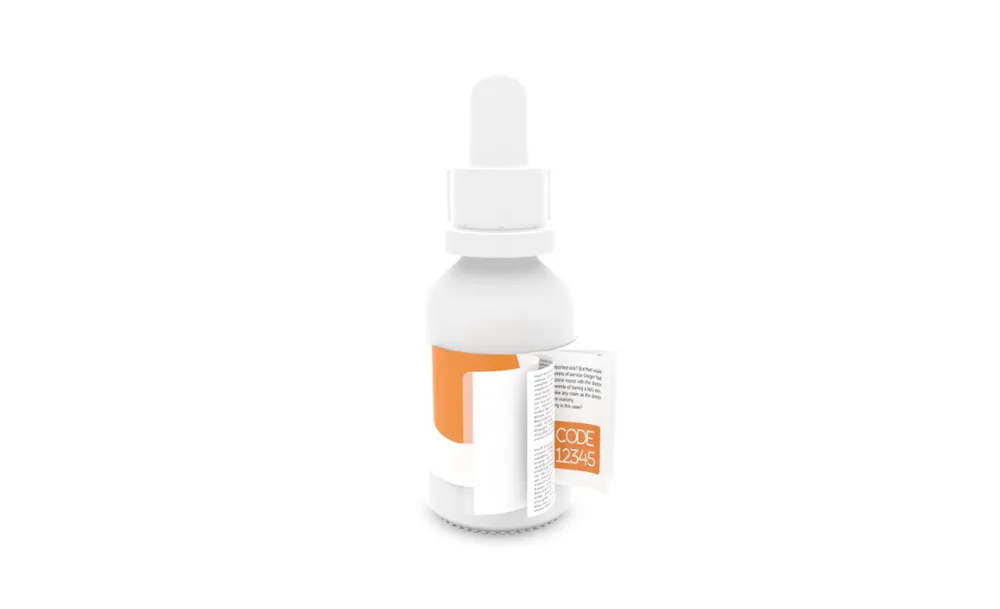
For specialised applications like pharmaceutical labelling, additional requirements may apply regarding tamper evidence and information clarity. Our booklet labels provide ample space for regulatory information whilst maintaining compliance with relevant standards. These expanded content labels solve the challenge of communicating extensive information in limited packaging space, supporting regulatory compliance whilst enhancing user understanding.
Flexible Packaging
Flexible packaging has gained a big market share because it's versatile, uses resources efficiently, and is convenient for consumers. This packaging type presents unique challenges for ISO certification because of its complex material structures and specialised manufacturing processes. ISO requirements for flexible packaging address barrier properties, seal integrity, and printing quality on flexible substrates, ensuring that these packaging solutions deliver reliable performance for a wide range of products.
Flexible packaging solutions, such as our kraft stand-up pouches, must meet ISO standards related to:
- Barrier properties that protect products from oxygen, moisture, light, and other environmental factors
- Seal integrity to prevent leakage and maintain product freshness throughout shelf life
- Material safety for food contact, ensuring no harmful substances migrate into the product
- Printing quality on flexible substrates, maintaining brand identity and product information
- Mechanical strength to withstand handling, transportation, and consumer use
These requirements are particularly important for packaging that contains food products or other sensitive items that require protection from environmental factors and contamination. Our flexible packaging options are designed to provide reliable protection whilst meeting all relevant ISO standards, combining functional performance with aesthetic appeal and consumer convenience.
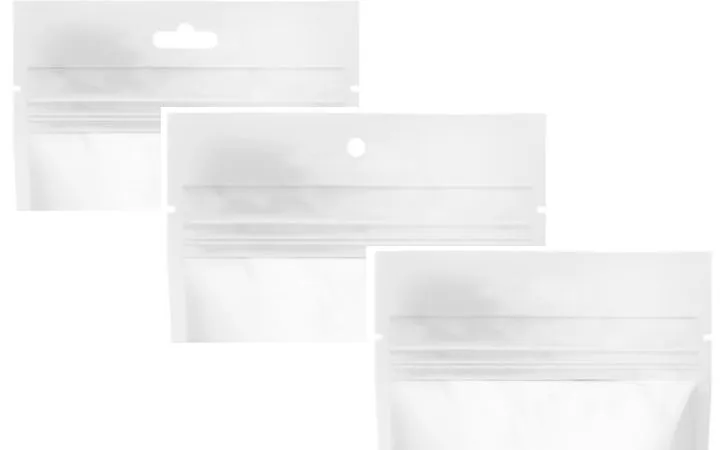
Security Packaging
Security packaging has an important job protecting valuable products, preventing counterfeiting, and ensuring product authenticity. This specialised packaging category must meet strict ISO requirements related to tamper evidence, authentication features, and information security. The standards address both the physical security features and the systems that support verification and traceability throughout the supply chain.
Security packaging, including our security labels, must comply with specialised standards related to:
- Tamper evidence features that provide visible indication of unauthorised access attempts
- Authentication elements such as holograms, colour-shifting inks, and microtext that are difficult to replicate
- Serialisation and traceability features that support product authentication and supply chain security
- Material durability to ensure security features remain intact throughout product lifecycle
- Information security in the production process to prevent compromise of security elements
These requirements are particularly important for high-value products, pharmaceuticals, and items that require protection against counterfeiting. Our security packaging solutions incorporate features that meet these stringent requirements, providing reliable protection against tampering and counterfeiting whilst maintaining aesthetic appeal and usability.
Environmental Management and ISO Certification for Packaging Companies
Environmental responsibility has become really important in the packaging industry, driven by what consumers want, what brands promise, and what regulations require. ISO certification increasingly addresses environmental aspects of packaging production, providing frameworks for reducing environmental impacts whilst maintaining functional performance. This integration of environmental considerations into quality management systems helps packaging companies balance environmental responsibility with market requirements.
ISO 14001 and Environmental Management
ISO 14001 provides a comprehensive framework for environmental management that helps packaging companies systematically address their environmental impacts. This standard goes beyond basic compliance to promote continuous improvement in environmental performance through structured planning, implementation, and review processes. For packaging manufacturers, ISO 14001 certification demonstrates a commitment to environmental responsibility that resonates with environmentally conscious customers and supports corporate environmental goals.
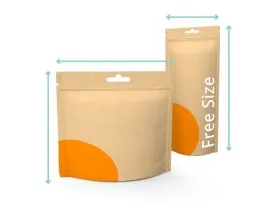
ISO 14001 helps packaging companies:
- Identify and control environmental impacts through systematic assessment and management
- Improve resource efficiency by optimising material usage, energy consumption, and water use
- Reduce waste generation through better process design, material selection, and recycling initiatives
- Implement lifecycle thinking that addresses environmental impacts from raw material sourcing to end-of-life
- Set and achieve environmental goals that align with business objectives and stakeholder expectations
At Labelprint24, our commitment to environmental responsibility is reflected in our kraft paper stand-up pouches and other packaging options. These products use renewable materials with reduced environmental impact whilst maintaining the functional properties required for product protection and presentation. Our environmental management system helps us continuously improve our environmental performance whilst meeting customer requirements for responsible packaging solutions.
Responsible Materials and Practices
ISO certification often encourages the use of responsible materials and practices in packaging production, aligning quality management with environmental responsibility. This integration helps packaging companies develop solutions that meet both performance requirements and environmental goals, addressing growing market demand for environmentally responsible packaging options. By incorporating environmental considerations into product development and manufacturing processes, certified companies can differentiate their offerings in competitive markets.
Responsible packaging approaches encouraged by ISO certification include:
- Recyclable and biodegradable materials that reduce end-of-life environmental impacts
- Reduced material usage through design optimisation and lightweight solutions
- Energy-efficient production processes that minimise carbon footprint
- Water conservation measures that reduce consumption and wastewater generation
- Responsible sourcing of raw materials from certified sources
Our folding boxes are available in natural, unbleached materials that align with responsible packaging trends. These materials require less processing and chemical treatment, reducing environmental impact whilst providing the structural integrity and printability needed for effective packaging. By offering these responsible options alongside traditional materials, we help customers make environmentally responsible choices that align with their brand values and environmental commitments.

Carbon Footprint Reduction
ISO certification can help packaging companies track and reduce their carbon footprint through systematic measurement, monitoring, and improvement processes. By integrating carbon management into quality and environmental management systems, companies can identify high-impact areas and implement targeted reduction strategies. This approach not only reduces environmental impact but often leads to cost savings through improved efficiency and reduced resource consumption.
Key carbon footprint reduction strategies supported by ISO certification include:
- Energy use monitoring and reduction through efficiency improvements and equipment upgrades
- Transportation optimisation to reduce emissions from logistics operations
- Supplier selection based on environmental criteria, including carbon performance
- Process efficiency improvements that reduce waste and resource consumption
- Renewable energy adoption to replace carbon-intensive energy sources
Our folding boxes are available in natural, unbleached materials that align with responsible packaging trends. These materials require less processing and chemical treatment, reducing environmental impact whilst providing the structural integrity and printability needed for effective packaging. By offering these responsible options alongside traditional materials, we help customers make environmentally responsible choices that align with their brand values and environmental commitments.
Technology Integration and Modern ISO Compliance
The packaging industry is rapidly evolving with new technologies that enhance both production capabilities and compliance management. Modern ISO certification frameworks increasingly accommodate and encourage the adoption of advanced technologies that improve quality, efficiency, and traceability. Understanding how to integrate these technologies while maintaining ISO compliance is essential for packaging companies looking to remain competitive in the digital age.
Digital Quality Management Systems
Digital quality management systems represent a significant advancement in how packaging companies can achieve and maintain ISO certification. These systems integrate data collection, analysis, and reporting capabilities that provide real-time visibility into quality performance and compliance status. By digitising quality processes, packaging companies can achieve greater consistency, faster response times, and more comprehensive documentation than traditional paper-based systems.
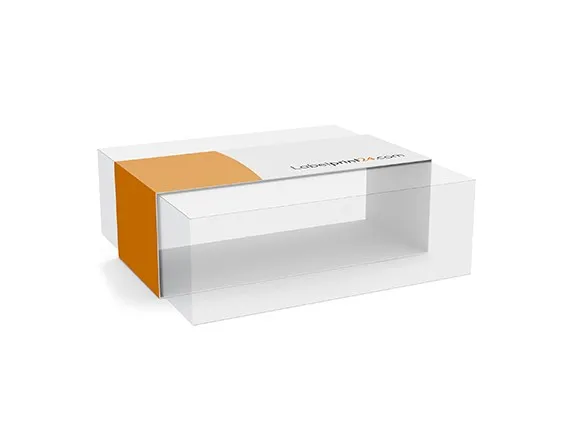
Key benefits of digital quality management systems include:
- Real-time monitoring of production parameters and quality metrics
- Automated data collection that reduces human error and improves accuracy
- Advanced analytics that identify trends and potential issues before they become problems
- Integrated documentation systems that streamline audit preparation and compliance reporting
- Mobile accessibility that enables quality checks and reporting from anywhere in the facility
These digital systems support our commitment to maintaining high-quality standards across all our products, from our packaging sleeves to complex multi-component packaging solutions. The integration of digital quality management helps ensure consistent product quality while providing the documentation needed for ISO compliance and customer confidence.
Traceability and Serialisation Technologies
Modern packaging increasingly requires sophisticated traceability and serialisation capabilities to meet regulatory requirements and customer expectations. These technologies enable complete tracking of products from raw materials through to end consumers, supporting both quality management and regulatory compliance. ISO certification frameworks recognise the importance of traceability systems and often require their implementation for certain types of packaging, particularly in regulated industries.
Advanced traceability systems provide several important capabilities:
- Complete supply chain visibility from raw materials to finished products
- Rapid response capabilities for product recalls or quality issues
- Authentication features that help prevent counterfeiting and protect brand integrity
- Regulatory compliance support for industries with strict traceability requirements
- Data analytics that provide insights into supply chain performance and quality trends
Our implementation of advanced traceability systems supports products like our security labels, where authenticity and tamper evidence are critical requirements. These systems ensure that each product can be tracked throughout its lifecycle, providing the documentation and verification capabilities needed for both ISO compliance and customer assurance.
Automation and Process Control
Automated production systems and advanced process control technologies play an increasingly important role in achieving and maintaining ISO certification. These technologies help ensure consistent production quality, reduce human error, and provide detailed documentation of manufacturing processes. ISO standards recognise the value of automation in achieving quality objectives and encourage its adoption where appropriate for the specific packaging applications.
Automation technologies that support ISO compliance include:
- Automated inspection systems that check product quality at multiple production stages
- Process control systems that maintain optimal production parameters
- Statistical process control that identifies variations before they affect product quality
- Automated documentation systems that record production data and quality metrics
- Predictive maintenance systems that prevent equipment failures that could affect quality
These automated systems support consistent quality across our entire product range, including complex products like our laminate tubes with screw closures. The precision and consistency provided by automation help ensure that these sophisticated packaging solutions meet the exacting standards required by our pharmaceutical and cosmetic industry customers.
Industry-Specific Certification Challenges and Solutions
Different industries present unique challenges for packaging companies seeking ISO certification. Understanding these industry-specific requirements and developing appropriate solutions is essential for packaging manufacturers who serve diverse markets. Each industry has distinct regulatory environments, quality expectations, and technical requirements that must be addressed through specialised approaches to ISO implementation.
Pharmaceutical Packaging Challenges
The pharmaceutical industry presents some of the most stringent requirements for packaging companies, combining ISO standards with Good Manufacturing Practices (GMP) and various regulatory requirements from agencies like the FDA, EMA, and other national authorities. These requirements address every aspect of packaging production, from material selection to final inspection, with particular emphasis on preventing contamination and ensuring product integrity.
Key challenges in pharmaceutical packaging include:
- Contamination control throughout the entire production process
- Material compatibility testing to ensure no adverse interactions with medicines
- Serialisation and anti-counterfeiting measures as required by regulations
- Temperature and humidity control during production and storage
- Complete documentation and traceability for regulatory compliance
Our approach to pharmaceutical packaging, including products like our booklet labels, addresses these challenges through specialised production environments, rigorous testing protocols, and comprehensive documentation systems. These labels are particularly valuable for pharmaceutical applications where extensive product information must be communicated in limited space whilst maintaining readability and durability.
Food Industry Compliance Requirements
Food packaging presents unique challenges related to safety, migration testing, and regulatory compliance across multiple jurisdictions. ISO certification for food packaging must address not only quality management but also food safety principles, including HACCP (Hazard Analysis and Critical Control Points) and various food contact material regulations. These requirements ensure that packaging materials do not compromise food safety or quality.
Critical considerations for food packaging certification include:
- Migration testing to ensure no harmful substances transfer from packaging to food
- Allergen management and cross-contamination prevention
- Temperature resistance for various food processing and storage conditions
- Barrier properties to maintain food freshness and prevent spoilage
- Compliance with food contact material regulations in multiple markets
Our food packaging solutions, such as our stand-up pouches, are designed to meet these stringent requirements whilst providing the functionality and appeal that food brands require. These pouches combine excellent barrier properties with attractive presentation options, supporting both food safety and marketing objectives.
Cosmetics and Personal Care Packaging
The cosmetics industry requires packaging that balances aesthetic appeal with functional performance and regulatory compliance. ISO certification for cosmetics packaging must address ingredient compatibility, stability testing, and various regulatory requirements related to product claims and safety information. These requirements vary significantly across different markets, creating additional complexity for companies serving international customers.
Key aspects of cosmetics packaging certification include:
- Compatibility testing with various cosmetic formulations
- Stability under different storage conditions and temperatures
- Aesthetic quality maintenance throughout product lifecycle
- Regulatory compliance for labelling and product information
- Tamper evidence and product integrity protection
Our cosmetics packaging solutions, including our specialised cosmetic packaging, address these requirements through careful material selection, comprehensive testing, and attention to both functional and aesthetic details. These products help cosmetic brands maintain their image whilst ensuring product integrity and regulatory compliance.
Future Trends in ISO Certification for Packaging
The packaging industry and its associated ISO standards continue to evolve in response to technological advances, environmental concerns, and changing consumer expectations. Understanding these emerging trends helps packaging companies prepare for future certification requirements and market demands. Forward-thinking companies that anticipate these changes can gain competitive advantages while ensuring continued compliance with evolving standards.
Digital Integration and Industry 4.0
The integration of digital technologies and Industry 4.0 concepts is transforming how packaging companies approach ISO certification and quality management. These technologies enable more sophisticated monitoring, control, and documentation of manufacturing processes, potentially revolutionising how compliance is achieved and maintained. Future ISO standards are likely to increasingly recognise and encourage the adoption of these digital technologies.
- Internet of Things (IoT) sensors for real-time process monitoring and quality control
- Artificial intelligence and machine learning for predictive quality management
- Blockchain technology for enhanced traceability and supply chain transparency
- Digital twins for process optimisation and virtual testing
- Cloud-based quality management systems for improved accessibility and collaboration
These technologies support our commitment to innovation while maintaining the highest quality standards across all our products, from simple labels to complex packaging systems. The integration of advanced digital technologies helps ensure that our manufacturing processes remain at the forefront of industry best practices while supporting ISO compliance objectives.
Circular Economy and Lifecycle Assessment
The increasing focus on circular economy principles is influencing ISO standards and certification requirements for packaging companies. Future standards are likely to place greater emphasis on lifecycle assessment, design for recyclability, and end-of-life management. This shift requires packaging companies to consider environmental impacts throughout the entire product lifecycle, from material sourcing to disposal or recycling.
Key aspects of this trend include:
- Lifecycle assessment integration into quality management systems
- Design for circularity principles in product development
- Extended producer responsibility compliance and reporting
- Material passport systems for enhanced recyclability tracking
- Collaboration with recycling infrastructure and waste management systems
Our commitment to environmental responsibility is reflected in products like our kraft paper pouches, which are designed with end-of-life considerations in mind. These products demonstrate how packaging can balance functional performance with environmental responsibility, supporting both customer requirements and broader societal goals.
Personalisation and Mass Customisation
The growing demand for personalised and customised packaging presents new challenges and opportunities for ISO certification. These trends require packaging companies to maintain quality and compliance standards across much more diverse product portfolios, including small-batch and one-off productions. Future ISO standards may need to address the unique requirements of mass customisation while maintaining the consistency and reliability that certification represents.
Challenges and opportunities in this area include:
- Quality management for small-batch and custom productions
- Flexible manufacturing systems that maintain compliance across product variations
- Digital printing and finishing technologies for customisation
- Supply chain management for diverse material and component requirements
- Customer communication and approval processes for custom products
Our capabilities in customisation, demonstrated through products like our custom folding boxes, show how ISO-compliant processes can accommodate individual customer requirements whilst maintaining consistent quality standards. This flexibility helps customers achieve their unique branding and functional objectives while benefiting from certified quality management systems.
Conclusion
ISO certification represents a fundamental commitment to excellence in the packaging industry, providing frameworks for quality management, environmental responsibility, and operational efficiency that benefit both manufacturers and their customers. As demonstrated throughout this comprehensive guide, the path to certification requires significant investment in systems, processes, and training, but delivers substantial returns through improved credibility, operational efficiency, and market access.
The packaging industry's unique challenges—from ensuring product safety and regulatory compliance to meeting diverse customer requirements across multiple industries—make ISO certification particularly valuable. These standards provide structured approaches to managing complexity whilst maintaining the consistency and reliability that customers expect from their packaging suppliers. The integration of quality management with environmental considerations also helps packaging companies address growing demands for responsible business practices.
For packaging companies serving regulated industries like pharmaceuticals, food, and cosmetics, ISO certification often becomes essential for market access. The specialised requirements of these industries, combined with increasingly stringent regulatory environments, make certified quality management systems invaluable for demonstrating compliance and building customer confidence. Our experience in these sectors has shown how ISO certification can differentiate packaging suppliers and create opportunities for long-term partnerships with quality-conscious customers.
The future of ISO certification in packaging will likely be shaped by technological advances, environmental concerns, and evolving customer expectations. Digital technologies, circular economy principles, and mass customisation trends present both challenges and opportunities for packaging companies. Those that proactively adapt their ISO-compliant systems to accommodate these changes will be best positioned for future success in an increasingly competitive and regulated marketplace.
At Labelprint24, our commitment to ISO standards reflects our understanding that certification is not just about meeting minimum requirements—it's about demonstrating a genuine commitment to excellence that permeates every aspect of our operations. From our security labels to our flexible packaging solutions, every product benefits from the systematic approaches to quality, environmental management, and continuous improvement that ISO certification requires.
For companies considering ISO certification, the journey requires significant commitment but offers substantial rewards. The process of achieving certification often reveals opportunities for operational improvement that deliver immediate benefits, whilst the certification itself opens doors to new markets and customer relationships. For customers evaluating packaging suppliers, working with ISO-certified companies provides assurance that their packaging requirements will be met consistently and reliably, supporting their own quality and compliance objectives.
As the packaging industry continues to evolve, ISO certification will remain a cornerstone of professional practice, providing the foundation for innovation, improvement, and excellence that customers and stakeholders expect. Companies that embrace these standards and integrate them into their core business practices will be best positioned to thrive in the dynamic and demanding packaging marketplace of the future.




